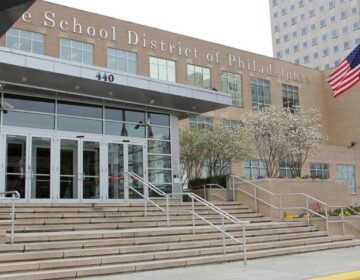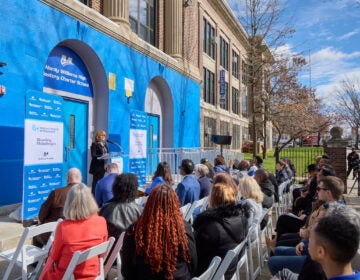Solving summer learning loss on the court and in the classroom
The term “summer slide” may conjure images of water parks or amusement rides. Unfortunately, however, it describes a serious educational challenge that is most acute in high-poverty neighborhoods of cities like Philadelphia.
Academic disengagement during the summer months has been shown to cause a backslide of skills equal to approximately one month of learning during the school year. It’s a problem that students, teachers, parents, and administrators have been wrestling with for decades.
Every June, kids leave school performing at a higher level than they will be able to achieve in September. A 2011 study conducted by Rand Education and commissioned by the Wallace Foundation underscored a troubling reality within this trend: Children from lower-income families fall further behind during this period than those from more affluent families.
This gap seems to be at least partially explained by a lack of summer learning opportunities for lower-income students compared to their more affluent counterparts. While middle class students appear to hold steady or improve performance over the summer, students from lower socioeconomic status families tend to lose ground.
A closer look into the summer slide reveals a more significant impact than previously thought. Researchers at Johns Hopkins University found that there is a cumulative summer learning loss that lower-income students face over their entire school careers. In other words, the achievement gap between the rich and poor widens each year due to the summer slide, which leads to a snowballing of learning loss that becomes harder to overcome each year.
By the time students reach high school, this gap can in part explain differences in whether children are placed in a college preparatory track in high school, whether they complete high school, and whether they attend a four-year college. With these potential consequences well established by education research, there is a dire need for summer enrichment opportunities for all of our students in Philadelphia, especially those from our lower-income communities.
For the second consecutive year, Philadelphia Youth Basketball has looked to fill that void.
During the school year PYB has partnered with a growing number of middle schools in North Philadelphia, offering an opportunity for students to grow both on the basketball court and in the classroom. The program is held after school and is composed of one hour of basketball skills and drills and one hour of academic skill building in the classroom.
This partnership with area middle schools is only one small part of PYB’s larger mission, which includes the eventual building of a much needed state-of-the-art facility in the under-resourced Logan area of the city. It makes perfect sense that PYB should continue to facilitate student athlete development throughout the summer in order to continue engagement within the communities the organization hopes to serve year round in this area.
The Collegiate Summer Camp Series (CSCS) keeps PYB’s connection to the community alive and vibrant throughout the summer while addressing the serious need for summer learning opportunities for students in Philadelphia. Middle and high school students, both male and female, attend the weekly camps — each held at a different area college or university. The camp day includes plenty of basketball drills and game play, but also an “academic hour” led by “classroom coaches” who engage students in discussions, debates, hands-on activities, and writing exercises all with a basketball focus.
Additionally, NBA Math Hoops helps students review math skills through a fun and fast-paced game. A daily nutritious lunch, celebrity guest speakers, and exposure to both a college campus and coaches who are college basketball players are other features of the CSCS. The availability of need-based scholarships up to 90 percent of the standard camp fee makes this program accessible to students at highest risk of the summer slide.
While the need for programs like the CSCS is obvious, there remains a glaring question: How can we be sure that all Philadelphia kids will have a safe, affordable, and mentally stimulating place to spend the summer months? Reversing the summer slide is crucial to the future of our city.
—
Amy Cohen is an educational consultant, and Pete Kaffenberger is an academic mentor at Philadelphia Youth Basketball.
WHYY is your source for fact-based, in-depth journalism and information. As a nonprofit organization, we rely on financial support from readers like you. Please give today.






